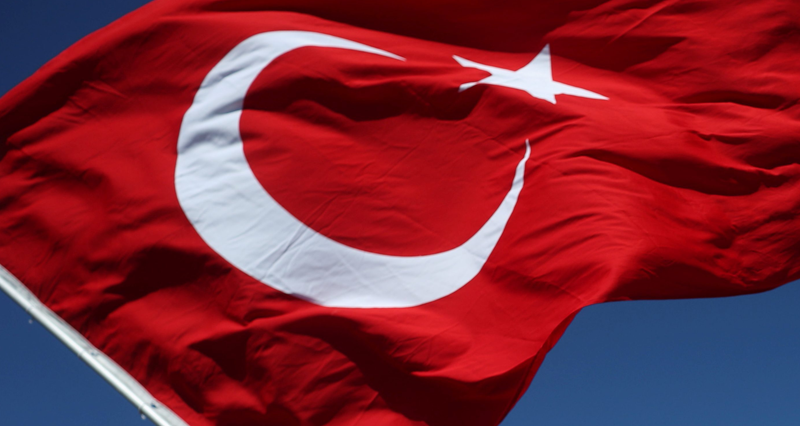Despite the effects of the coronavirus pandemic, tensions in international relations continue all over the world, including Turkey, where conflict has continued without missing a beat.
Last week, the political crisis with the United Arab Emirates(UAE) and the fate of the S-400 air defense missiles were the two main subjects in the diplomatic corridors of Ankara.
UAE BACKED FORCES ARE LOSING THE WAR IN LIBYA
Long-term rivals Turkey and the UAE have been in indirect conflict on many fronts in the Middle East and North Africa. Libya, however, has become one of the actual battle grounds between these countries.
Ankara and Abu Dhabi are supporting opposite sides of the civil war in Libya which started after the slaughter of Colonel Ghaddafi by NATO forces in 2011. Turkey is now backing the UN-recognized Government of National Accord(GNA) in Tripoli, led by Fayez Al Sarraj and the UAE is financing and helping the General Khalifa Haftar’s forces based in Tobruk.
Last week, General Haftar’s self-proclaimed Libyan National Army lost important ground after attacks by the GNA.
In Libya, everybody knows that Haftar’s call for a ceasefire during holy Ramadan is a tactical request from his side in order to save time to gather more strength. Despite the calls of Haftar, the conflicts have only intensified in the country.
Simultaneously with his military loss, on the night of April 27, General Haftar posted a video message declaring that the LNA is withdrawing from the UN-recognized 2015 Skhirat Political Agreement, and called for street demonstrations in areas under his control. He also claimed to have “accepted the offer of mandate from the Libyan people” to govern the country.
It is worth noting that Haftar’s move came just after reform calls from the House of Representatives’ head Aguila Saleh. On April 23, Saleh put forward a road map outlining a Libyan political settlement, offering to form a presidential council and a commission in charge of drafting a constitution.
The latest events clearly show a serious political breakdown on Haftar’s side.
After the military withdrawal of the LNA forces and General Haftar’s coup attempt, his main supporter, the UAE’s ministry of foreign affairs, released a statement in which they expressed their concerns over the Turkish interference in Libya through the alleged deployment of fighters and smuggling of arms.
The spokesman of the Turkish Foreign Ministry Hami Aksoy replied to the UAE’s accusations by saying that the Turkish government has always respected the political unity and territorial integrity of the Arab countries and supports the UN-recognized administration of Libya in this regard.
He went on to say that the UAE is providing weapons, military equipment and funds for the putschists in Libya.
Aksoy has further noted that the international community is aware of the UAE’s activities in terms of disrupting the peace, security and stability in Libya, Yemen, Syria and the Horn of Africa.
Internationally, the security sources in the region are reporting an American presence in Libya and a close cooperation between the Libyan National Army, led by Khalifa Haftar, and US representatives.
On the other hand, Russia has distanced itself from Haftar after he refused to sign a peace agreement in Moscow with the Sarraj government. It turned out that Haftar was not under the influence of Russia alone, and that the failure to sign the Moscow-brokered deal was a serious disappointment.
In the coming days, we can expect negotiations between some factions within the GNA and the LNA in parallel with Turkish and Russian rapprochement in Libya.
TURKEY, RUSSIA, THE US AND THE S-400
In July 2019, Turkey received shipments of Russian S-400 missile defense systems despite opposition from the US.
Ankara had initially planned to activate the S-400 systems in April, but Presidential Spokesperson Ibrahim Kalin explained the delay was a result of the Coronavirus pandemic in an online meeting organized by the Atlantic Council.
David Satterfield, the US envoy to Ankara, another guest at the Atlantic Council’s meeting, responded to Kalin saying:“ We made our position quite explicit to President Erdogan, to all the senior leadership of Turkey, and that is the operation of the S-400 system … exposes Turkey to the very significant possibility of congressional sanctions, both those that invoke the [Countering America’s Adversaries Through Sanctions Act] legislation and additional freestanding legislative sanctions.”
Satterfield added that, “We do not have in our possession the assurances from the government of Turkey that would allow us to mitigate those concerns.”
The Russian S-400 missile defense system purchase was one of the important breaking points in relations between Ankara and Washington. US authorities continue to pressure Ankara not to activate the system which will practically symbolize the military rupture of Turkey from NATO.
The deep cooperation between Turkey and Russia and the aggressive method used by the US against the Turkish government indicates that in the following months, Turkey is likely to activate these systems despite American pressure.









Leave a Reply